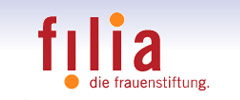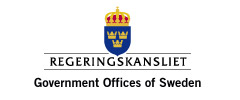Denmark: Ban on Bisphenol A in Food for Young Children
On the basis of a new assessment by the National Food Institute at the Technical University of Denmark (DTU Food), the Danish government has, together with the Danish People's Party, decided to invoke the principle of precaution and introduce a temporary national ban on bisphenol A in materials in contact with food for children aged 0 – 3 years
30.03.2010 |Flexnews
March 29 - On the basis of a new assessment by the National Food Institute at the Technical University of Denmark (DTU Food), the Danish government has, together with the Danish People's Party, decided to invoke the principle of precaution and introduce a temporary national ban on bisphenol A in materials in contact with food for children aged 0 – 3 years (infant feeding bottles, feeding cups and packaging for baby food)
The Danish Minister of Food, Henrik Høegh, says: “From DTU Food we have received an assessment based on new comprehensive studies of rats. Danish experts say there is no clear evidence that bisphenol A has harmful effects on the behaviour observed. However, the experts find that the new studies raise uncertainties about whether even small amounts of bisphenol A have an
impact on the learning capacity of new-born rats. In my o inion these
uncertainties must benefit the consumers, so we will utilize the
precautionary principle to introduce a national ban on bisphenol A in
materials in contact with food for children aged 0 – 3 years.”
The new assessment from DTU Food
The Danish Veterinary and Food Administration has asked DTU Food to asses whether the industry’s new comprehensive animal study of bisphenol A can document if small doses of bisphenol A can harm the development of the nervous system or the behaviour of new-born rats. The overall assessment from DTU Food is that this study does not shed new light nor change the uncertainties about the impact of small doses of bisphenol A on the development of the nervous system and the
behaviour of rodents.
The conclusion from DTU Food is that the new study does not give clear evidence of bisphenol A harming the kind of behaviour examined in the study. However, it raises uncertainties about the impact on learning capacity. The study revealed reduced learning capacity of young male rats at low doses of bisphenol A. It is DTU Food’s assessment that the finding of reduced learning capacity of new-born males may be a sign of low-dose effect of bisphenol A. However, it may be a matter of coincidence.
Conclusion of the Danish Veterinary and Food Administration
The Danish Veterinary and Food Administration notes that DTU Food does not find that the new study sheds new light on the uncertainties about the possible impact of small doses of bisphenol A on the development of the nervous system. The Institute pointed out the uncertainties earlier. In 2008, the Danish Minister of Food asked the EU Commission and the European Food Safety Authority (EFSA) to clarify these uncertainties through new, well-documented and thorough scientific studies. Therefore the Danish Veterinary and Food Administration finds there is a need for further studies in order to obtain the necessary knowledge.
The Danish Veterinary and Food Administration notes, however, that the study, according to DTU Food, raises uncertainty regarding offect on the learning capacity, since reduced learning capacity has been found in young male rats given low doses of bisphenol A. On this basis the Danish Veterinary and Food Administration finds that the precautionary principle dictates the introduction of protective
measures with respect to children aged 0 – 3 years until new studies
document that low doses of bisphenol A do not have an impact on
development of the nervous system or on the behaviour of rats.
Therefore the Danish Veterinary and Food Administration is now
introducing a temporary national ban on bisphenol A in products aimed at children aged 0 – 3 years. The ban includes feeding bottles, feeding cups and materials in contact with food aimed at children aged 0 – 3 years, and which are included in the Danish order on breast milk substitutes and mixed substitutes for babies and young children (No 1504 dated 13 December 2007) and the order on manufactured food for young children and babies (No 355 dated 17 June 1998).
The ban is introduced with a three-month transitional period in which products that are in stock now may be marketed. From 1 July 2010 bisphenol A is not allowed in the products covered by the ban.
Related News
Meet the Winners of the Gender Just Climate Solutions Award at COP24
On the 70th anniversary of the Universal Declaration of Human Rights, we awarded Gender Just Climate Solutions Winners at the climate negotiations in Katowice, Poland
11.12.2018
Invitation: Gender Just Climate Solutions Award 2018
10 December, COP24 Katowice
04.12.2018
Getting to the Future We Want
4-7 November, Brussels: European Environmental Bureau’s (EEB) Annual Conference
12.11.2018
GoodFood4All
WECF and partners all over Europe start GoodFood4All Campaign
06.11.2018
#Ruralwomen: join our Women2030 campaign!
15.10.2018






































